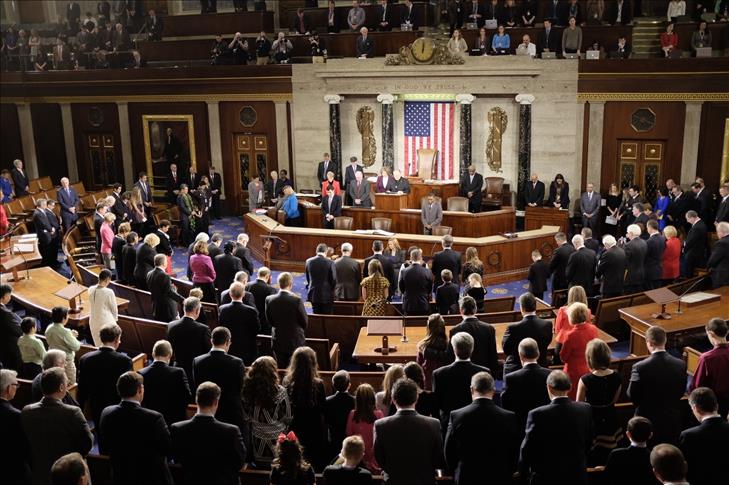Congress, Russia threaten Obama’s foreign policy legacy
Unlike his predecessor, George W. Bush, Obama has emphasized international coalition building and diplomatic engagement

WASHINGTON
During the final two years of his
Unlike his predecessor, George W. Bush, Obama has emphasized international coalition building and diplomatic engagement during his time in office, leaving little room for unilateral American action.
From the Caribbean to the Middle East and Asia, Obama has sought to engage stalwart enemies, build coalitions to meet global threats, and mend international disputes before they escalate into full-blown conflict.
If he can successfully negotiate it, an ongoing normalization of relations with longtime foe Cuba may stand as the defining accomplishment of his presidency. But an oppositional Congress plays a critical role in any final deal.
A critical step was reached Jan. 15 when the departments of Commerce and Treasury announced new rules to help facilitate American travel and investment on the island nation. And Obama has said that he will re-open the American embassy in Havana, which has been shuttered since 1961.
Still, the more than
“This is a windfall for the Castro regime that will be used to fund its repression against Cubans, as well as its activities against U.S. national interests in Latin America and beyond,” said Cuban-American Sen. Marco Rubio who challenged Obama’s authority to take the actions.
It’s unclear if Obama will be able to muster the congressional support necessary to end the embargo should his efforts get to the point where they require it.
Cuba notwithstanding, another diplomatic détente is likely to face even greater congressional opposition.
While the Obama administration has not attempted the whole-scale rapprochement seen in its Cuba initiative, ongoing negotiations with Iran
He has threatened to veto further action should it reach his desk, telling lawmakers to “hold your fire.”
“He expects us to stand idly by and do nothing while he cuts a bad deal with Iran. Two words: Hell no! … We’re going to do no such thing,” House Speaker John Boehner told House Republicans.
With the deadline for a political agreement in March, negotiators have precious little time to iron out issues that have proven insurmountable on two previous negotiations.
Obama acknowledged that the chances of reaching a deal are “less than 50/50,” but has said that it’s worthwhile to let negotiations play out.
Even as Obama battles with congressional Republicans at home to make progress on his international efforts, he is being confronted with a foreign adversary abroad.
Russia, one of the U.S.’s negotiating partners in the international group that is seeking a deal with Iran, may further complicate the president’s efforts.
The country invaded Ukraine following the ouster of former President Viktor Yanukovych in February 2014. Roughly a month later Russia invaded the Crimean Peninsula and annexed it behind a contested referendum that international observers have discounted as illegitimate.
It also continues to support rebels in Ukraine’s east that are seeking to carve out semi-autonomous cantons. Most recently, the U.S. and its European allies have accused Russia of sending arms,
Despite successive waves of sanctions and a free fall in the price of oil that has ruined its economy, Russia is unlikely to be deterred by western action.
The moves show a Russia that is seeking to reestablish the regional influence it once held in the now defunct Soviet Union.
The Obama administration has repeatedly stated that economic sanctions will not be removed until Russia changes course, but the country has not only stayed the course, it has doubled down on its policy.
The president who has championed diplomacy as the first resort to addressing international crises also continues to be haunted by a raging conflict that shows no sign of abating any time soon.
Two of Obama’s main foreign policy objectives have been to end the wars in Iraq and Afghanistan, and while he has accomplished both, it has become increasingly difficult for the president not to get entangled in another, far more complex, battlefield.
The Syrian conflict has raged for nearly four years, leading to more than 200,000 deaths and the displacement of millions throughout the region.
Staunch Syrian ally Russia has continued to warn against U.S. military involvement that seeks to oust Syrian President Bashar al-Assad from power, but Congress is ramping up pressure on Obama to become more involved in the conflict.
While the U.S. has launched about 1,600 airstrikes against ISIL since operations began in August, it has done so under
Obama asked lawmakers for
Congressional Republicans have argued that any new authorization should keep open the option of American combat troops returning to the region, a move that Obama has stood against despite opposition from Democrats.
During his joint address to Congress, Obama said, “Instead of getting dragged into another ground war in the Middle East, we are leading a broad coalition, including Arab nations, to degrade and ultimately destroy this terrorist group," referring to ISIL.
Still, the administration has sought to ensure that all options are at its disposal as it continues to wrangle with the fallout from the Syrian civil war.
Throughout the course of his six-year presidency, Obama has








